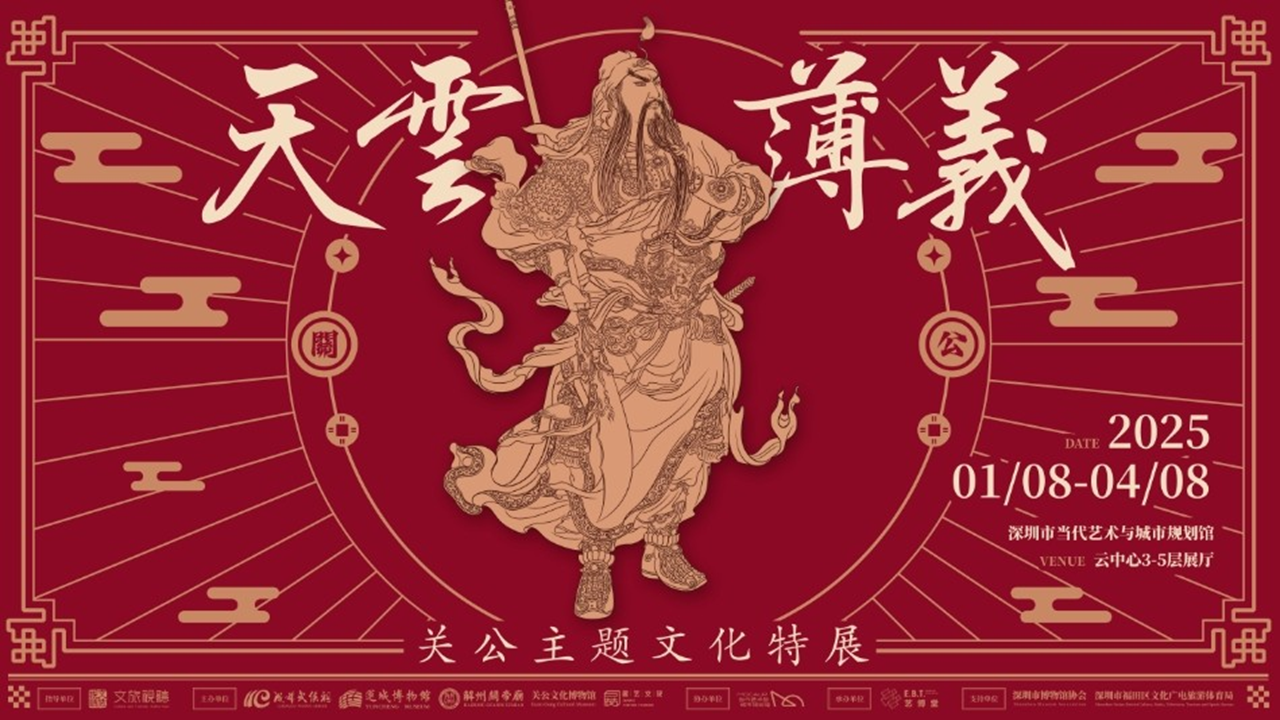Exhibition presents Guangong culture
Writer: Han Ximin | Editor: Lin Qiuying | From: Original | Updated: 2025-01-17
Guan Gong is worshiped as a deity in Chinese folk religion, is a popular figure in history and loved by the people for his loyalty, bravery, and righteousness.
Formally known as Guang Yu or Guan Yunchang, he was a prominent general during the Three Kingdoms period in ancient China and a core figure in "Romance of the Three Kingdoms," the Chinese historical novel in which he was depicted as a paragon of loyalty, righteousness, and valor. He is renowned for his skills in combat, often wielding his famous weapon, the Green Dragon Crescent Blade, and riding his renowned steed the Red Hare.
Guan Yu, once played significant roles in decisive battles and gained reputation for his martial prowess and unwavering loyalty, now comes to the Guangdong-Hong Kong and Macao Greater Bay Area with the opening of the 2025 Guan Gong Cultural Theme Exhibition at Shenzhen Museum of Contemporary Art and Urban Planning, the iconic cultural site in Shenzhen CBD.

A poster of the 2025 Guan Gong Cultural Theme Exhibition. File Photo
Covering a combined area of 1,500 square meters, the exhibition brought together more than 60 exhibits relating to Guan Gong, showcasing national treasures and contemporary art masterpieces from visitors to gains a comprehensive understanding of Guan Gong culture.
Guang Yu was posthumously granted the title of "Marquis of Hanshou" and was later deified as "Lord Guan" or "Emperor Guan." His legacy influences Chinese art, literature, and popular culture, with temples and shrines dedicated to him across the country.
The exhibition is distinctive with a rich variety of exhibits covering traditional art, contemporary art, and intangible cultural heritage and folk customs. Through various works related to Guan Gong culture, it interprets the cultural process of Guan Gong's transformation from a mortal to a deity, showcasing the moral spirit of loyalty, righteousness, benevolence, and courage, as well as the diverse connotations of faith.
The exhibition is divided into three sections including Guan Gong in contemporary art, in traditional culture and in folk culture. Through the exhibits like Guan Gong sculptures in old and modern times, and interactions like trying on costumes in ancient times, and making New Year printed paintings, visitors will have a fun experience in learning Chinese history and enjoy modern digital technologies.